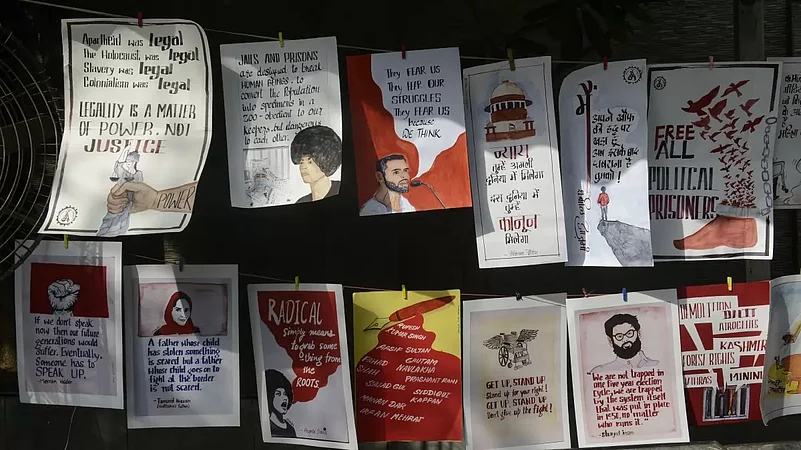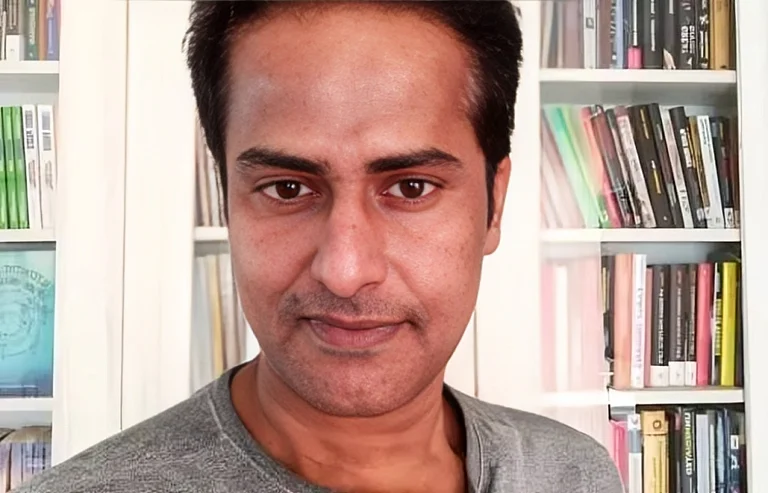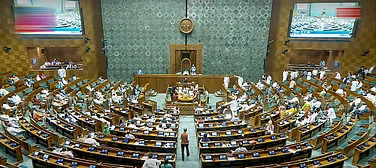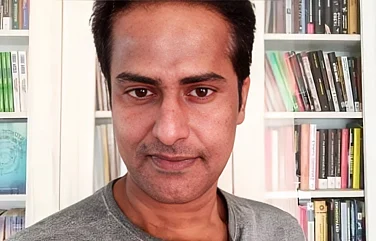“Mother of Democracy is sick for nine years. It is a multi-organ failure,” Rajya Sabha MP Manoj Jha’s words addressing the gathering at the Press Club of India to mark 1,000 days of Umar Khalid in prison were echoed by the other speakers as Indian jails get flooded with prisoners who mostly belong to marginalised communities.
As per the Prison Statistics of India Report (2021), 76 per cent of the total inmates are undertrials. Moreover, media reports point out that 66 per cent of them belong to the marginalised castes. The occupancy rate in Indian jails, as per reports, stands at 130.2 per cent. Khalid is among several others who have been languishing in jail for years.
“Even Gandhi was not in jail for 1,000 days in continuum,” says Prabhat Patnaik, renowned economist and emeritus professor, Jawaharlal Nehru University (JNU).
Khalid was not even granted bail when the Apex Court ordered decongestion of Indian prisons in the backdrop of Covid-19 pandemic.
However, the reason behind such prolonged stay of Khalid could be traced to the 17,000-page charge sheet that the police have filed. Khalid’s father S Q R Ilyas says, “Seventeen-thousand-page charge sheet has been framed just to make it tedious for both the court and the lawyers to read and fight it. The motto is very clear — to put him behind the bars for unending time.”
Ilyas also echoes the words of other speakers noting that the fight is not only for Khalid, but it is for every political prisoner wrongfully put behind the bars. Questioning the very foundational basis of the case, Ilyas says, “During Delhi pogrom, Khalid was not even there in Delhi. He was always silent in the WhatsApp group that the police frequently refer to.”

However, prosecution has been trying to paint him as one of main conspirators behind the pogrom for years.
Arrested under the charges of Unlawful Activities Prevention Act (UAPA) for his alleged role in the Delhi pogrom of 2020 that took away 53 lives, Khalid has been frequently denied bail. In December, 2022, though the Delhi High Court gave him bail in the case related to violence in Khajuri Khas area of Northeast Delhi, he continued languishing behind the bars due to FIR 59/2020 that contains charges of UAPA. These charges implicate him in national security concerns.
Criticising such securitisation narrative, Jha says that in the name of national security, the government is putting anyone behind the bars. He says, “It is actually not a matter of security of the state — you are yourself unsecured. Even after such a majority, how can one feel not secured?”
Khalid was implicated by the police for the first time in 2016 for allegedly being one of the organisers of a programme that reportedly gave a call for justice to Afzal Guru. The right-wing media narratives since then started floating theories of ‘Tukde Tukde Gang’ and ‘Urban Naxals’ to purportedly discredit any voice of dissent.
Notably, in 2020, responding to a Right to Information (RTI) application filed by Saket Gokhale to know about the members of ‘Tukde Tukde Gang’, the Ministry of Home Affairs (MHA) said, “Ministry of Home Affairs has no information concerning tukde-tukde gang.”
However, its existence in popular media and political narratives besides Urban Naxal continued undeterred. “Who is Urban Naxal? If you stand for the marginalised section of the society like Dalits and Muslims, you become Urban Naxal,” says Ilyas.
The programme though was primarily scheduled to be held at Gandhi Peace Foundation. The permission was withdrawn in the final hours. Is it because of the fear of dissent? Supreme Court Advocate Shahrukh Alam, one of the speakers, says, “For the police and administration, dissent becomes a matter of law and order.”
She adds, “When we ask them why they are not stopping Dharam Sansads that have been peddling hate, despite SC’s rulings against it, they tell us it doesn’t violate law and order.” Pointing out that the police are following the logic of numbers where the majority sentiments cannot be hurt, she emphasises on the question of prevalent discrimination.
Jha connects the fight to justice for Khalid to the broader concerns of democracy. “It is not a fight only for Umar, rather it’s a fight to save democracy. The mother of democracy is sick for nine years. It is a case of multi-organ failure,” says Jha.

Talking about the institutional failures and anomalies found in the judicial interventions, Jha adds, “We have great judges whose morality and rationality are found in conferences but couldn’t get much space in their judgements.”
Even in despair, Khalid’s family and friends see lights of hopes in the coming days.
“As an activist, you can’t read much. But in prison, Umar got the chance to read in abundance. He has already read almost 100 books to know his country better. This will help him to grow,” his father adds.
The presence of hundreds of determined youths in the programme, nevertheless, gives the hope that the democracy still has a chance to survive, says senior journalist and Magsaysay awardee Ravish Kumar.
Khalid’s next bail hearing in Supreme Court is scheduled on July 12. Talking to Outlook, Ilyas says, “We are hoping that at least the SC will listen to our plea and he will be granted bail.”
The programme was about to be held at the conference hall of the Press Club, but it had to shift to the open location downstairs due to overcrowding.
“I don’t know whether the conference hall would have fallen or not, but this crowd makes me feel the ‘fall’ is coming. If it’s a season or not — you know better,” says a voice from the crowd, unidentified but known to many.



























